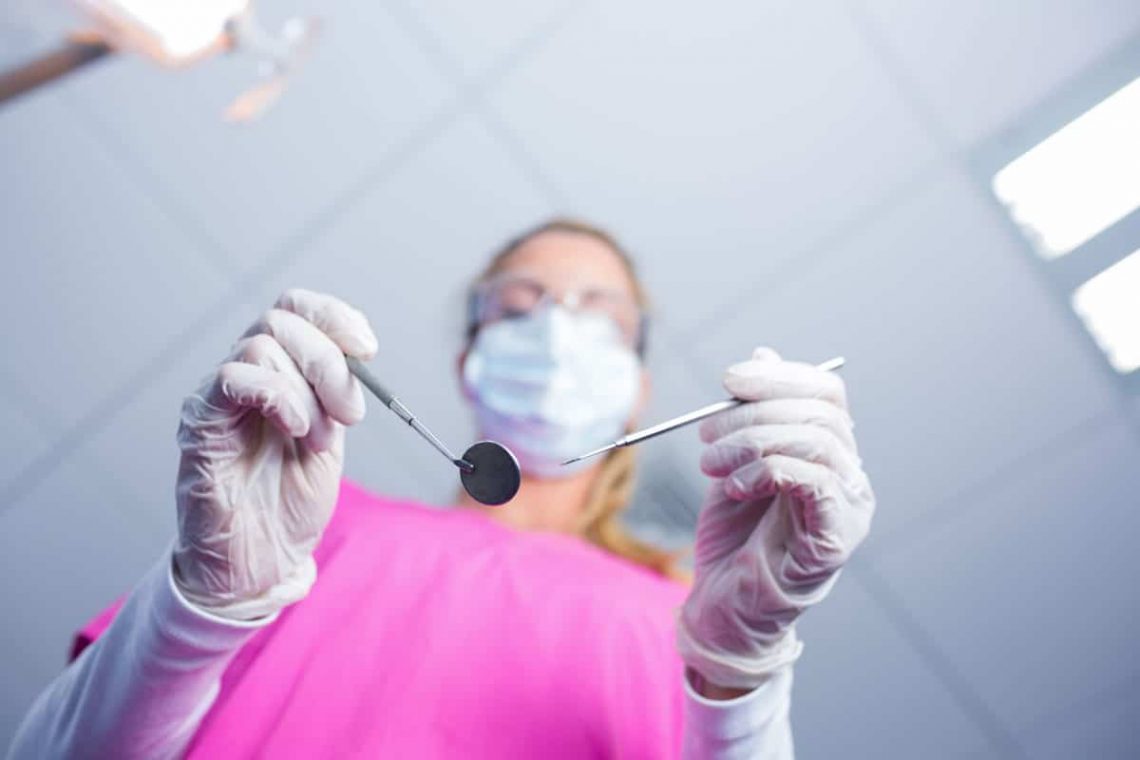Roughly 16% of the adult population of Australia suffers from dental phobia. For children, it’s slightly less, around 10%. Those seemingly small percentages represent hundreds of thousands of people across the country.
Like any phobia, there is hope of being able to overcome your fear of the dentist. But first, it’s important to understand the problem itself.
What Is Dental Phobia?
Dental phobia is also known as dentophobia or odontophobia.
Phobias typically manifest as avoidance behaviours. Dental phobic patients will go to great lengths to avoid visiting the dentist. Even thinking about the dentist is often too much to handle in extreme cases.
For patients with dental phobia, the only thing that can often get them to the clinic is a problem they simply cannot ignore any longer. And even then, it’s not easy.
Dental anxiety is a distinct but related issue. Patients are able to make appointments but can break out into sweats, shake, or even cry in the dental chair. A dental phobic patient who makes it to their appointment can be expected to experience the same symptoms.
How Does Dental Phobia Start?
Phobias of all sorts often begin life as a traumatic event.
A single negative experience with a dentist at a young age can mentally scar a person for life. A tooth extraction gone wrong, a filling performed without anaesthetic — even a routine visit that was just felt to be incredibly unpleasant by the patient can trigger it.
People can also absorb phobias from other people’s experiences. Constantly hearing about negative dental experiences, especially from parents, can deeply impact a person’s thoughts and feelings about dentistry.
Unrelated traumas and phobias can also manifest as dental phobia. People who have experienced domestic or sexual assault; refugees from war-torn countries; and even those who have simply experienced head and neck injuries in unrelated accidents can be dental phobic.
Related phobias that can trigger dental phobia also include:
- Fear of needles
- Fear of doctors
- Fear of medical environments
- Agoraphobia (fear of inescapable environments)
- Claustrophobia
- OCD
General psychological and mood disorders, such as depression, generalised anxiety, and PTSD, can make trips to the dentist difficult — if not impossible.
Why is Dental Phobia a Problem?
Roughly 7% of all hospitalisations in Australia are due to preventable illnesses.
Gingivitis, periodontitis, abscesses, and decay of both soft and hard tissues in the mouth are just some of the oral concerns that send people to the hospital.
All of them can be prevented through regular dental appointments.
Dental phobic patients, unfortunately, aren’t often able to make these appointments. Instead, they will wait until a problem has developed to a point that they can’t ignore the pain and desperately need treatment.
By this point, it’s often too late, and major damage has been done.
Moreover, oral complications don’t just affect the health of the mouth. Oral infections such as gingivitis and periodontitis can result in an increased risk of cardiovascular disease and complications in pregnancy.
Regular dental appointments are a key part of keeping yourself healthy, and missing too many such appointments can have severe consequences.
How Do You Treat Dental Phobia?
The best way to treat dental phobia is to establish a strong, trusting relationship with your dentist.
Trust is a major component of dental phobia. People with trust issues easily become dental phobic.
By building a strong rapport with your dentist — one who has a calm, empathetic manner, who makes you feel at ease and comfortable — is the single best tool to overcoming a phobia.
This is obviously easier said than done, and you have to get to the dentist to even start.
There are things you can consider to make it easier:
- Arrange an appointment with a dentist that involves no treatment — just a friendly introduction.
- Alert the dental team that you are dental phobic when making the booking. Be open and honest about your fears and concerns with your dentist.
- Relaxation techniques such as meditation and deep breathing can do wonders to set your mind at ease and get to the dental clinic calmly.
- Bring a friend or family member.
- Bring music you enjoy to distract yourself from any treatment.
- Don’t be afraid to stop the dentist when you feel overwhelmed or uncomfortable.
- Schedule your next appointment at the end of your current appointment. If you put it off until later, you’re likely to not schedule it at all.
Many dentists and dental practices do offer conscious sedation”, such as oral sedation, laughing gas (at Enamel we call it “Happy Gas“) for phobic and anxious patients. These can be useful tools for getting an urgent treatment done, but should not be considered a fix.
Building a relationship with your dentist will do more to relax and sedate you in the long run than relying on a sedative. Not only that, but sedatives also carry side-effects, costs, and risks that should be avoided unless necessary.
At Enamel, we have many patients who have Dental Phobia from mild to severe and we have been able to help them have a very positive and comfortable experience with us. We welcome anyone to get in touch with us to book an introductory session or if you have any further questions – call 3841 6641 or email [email protected].

